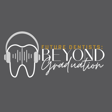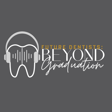
Self-Care for Dentists
About the Hosts:
Dr. Savanah Craig is a practicing dentist who, alongside navigating the early years of her career, co-hosts the "Beyond Graduation" podcast. She is passionate about sharing her journey and experiences with other professionals and graduates in the field of dentistry. Dr. Craig is also actively involved in guiding new graduates through tools like the Dental Residency Guide and Beyond Graduation eBooks.
Dr. Ronnetta Sartor is a dental professional known for her hands-on approach and dedication to involvement in mentorship and co-hosting the "Beyond Graduation" podcast. Dr. Sartor shares her real-life experiences and insights, particularly focusing on the importance of self-care in the demanding field of dentistry.
Episode Summary:
In this engaging episode of "Beyond Graduation," Dr. Savanah Craig and Dr. Ronnetta Sartor dive deep into the significance of self-care for dental professionals. Kicking off with a light-hearted revelation about Dr. Craig’s recent massage chair purchase, they illustrate the pivotal role of finding joy and relaxation amid the rigors of a dental career.
The discussion sheds light on the physical and mental toll dentistry can impose and highlights practical self-care strategies that both hosts have incorporated into their routines. Dr. Sartor emphasizes the importance of stretching, routine exercise, and massages, while Dr. Craig underscores the necessity of regular strength training to alleviate chronic pain. The conversation also explores how their self-care practices have evolved through various life phases, including practice ownership and personal changes. The hosts stress the multifaceted nature of self-care, advising listeners to cater to their physical, mental, and emotional well-being proactively. They highlight how dental professionals can maintain a healthy work-life balance despite the demanding nature of their profession.
Key Takeaways:
- Self-Care in Dentistry: The importance of self-care for dental professionals to sustain their careers and personal well-being.
- Physical Wellness: Incorporating strength training, stretching, and regular massages to prevent common physical ailments in dentistry.
- Routine Development: Creating and maintaining a self-care routine that fits individual schedules and responsibilities.
- Mental Health: The critical link between physical well-being and mental health, and strategies to manage stress effectively.
- Work-Life Balance: Tips for dental professionals to balance their professional obligations with personal life, ensuring their own well-being does not suffer.
Connect with Us:
- Savanah Craig, DDS: @savanahcraigdds
- Ronnetta Sartor, DMD: @dr_sartor
- FutureDentists Beyond Graduation: @futuredentistsbeyondgraduation
- Dental Residency Guide and Beyond Graduation eBooks: https://ignitedds.com/subscription-resources/
For all dental professionals navigating through the early years of their career, this episode is a treasure trove of practical advice on maintaining physical and mental health. Dr. Craig and Dr. Sartor’s insights will not only inspire but also equip you with actionable steps to better care for yourself. Tune in!


